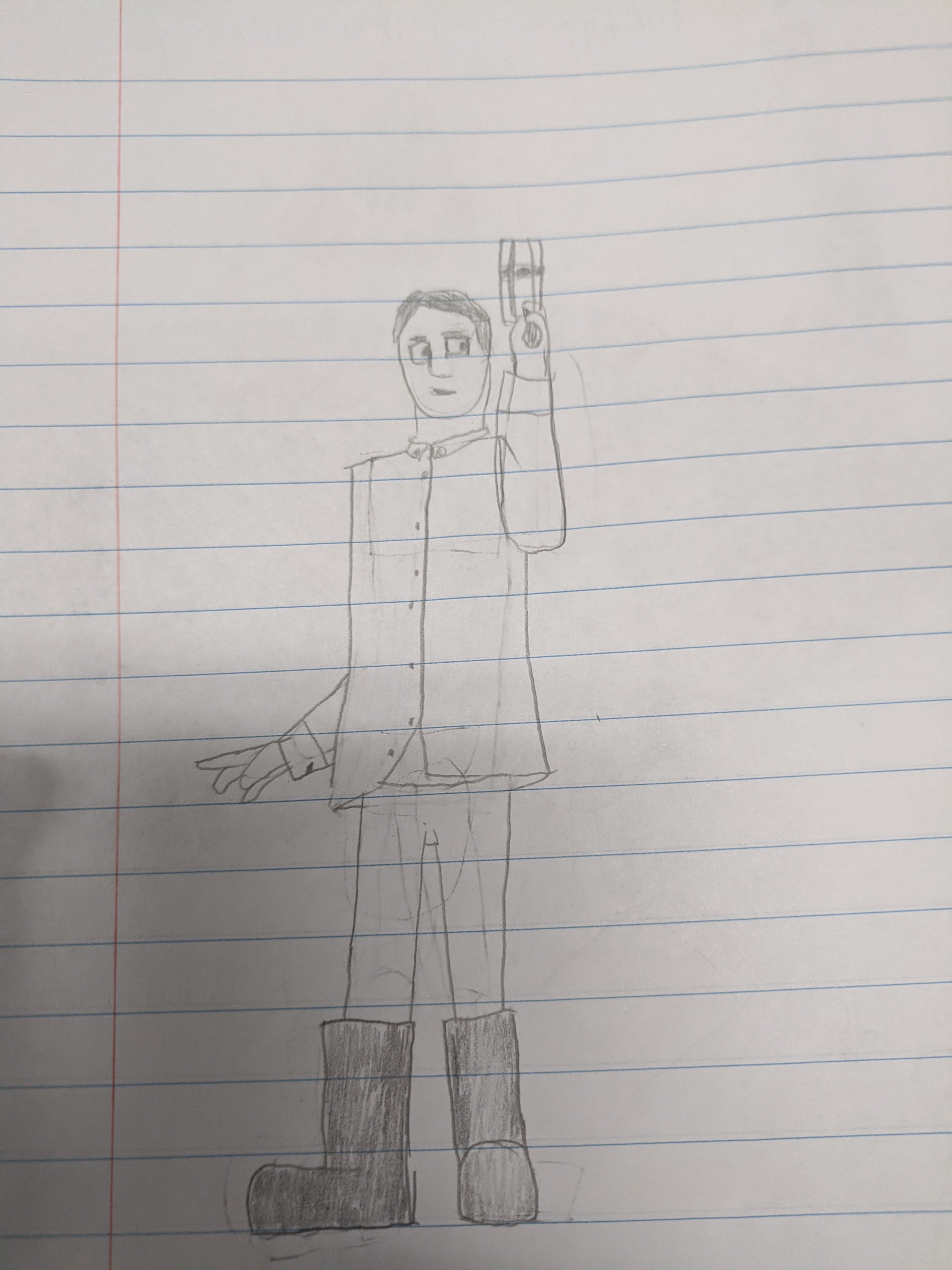Removed by mod
The French invented the bankers cheque so naturally that’s how it’s spelt. That’s the same reason it’s spelt baguette or duvet or hell even cafe.
Although knowing Americans they probably do have an alternate spellings
We usually just keep spelling things incorrectly until the dictionary gives up and adds the misspelling as correct
You just described the evolution of all language. Nothing unique to US America there.
You act like it wasn’t a dictionary author who taught us to misspell everything
You do realize that’s how dictionarys have always worked after all we stopped using little s because the serifs made them look like f so we started using 's instead so technically Mary’s dog is there. Is misspelled
Don’t forget fillet , which for some reason the English insist on pronouncing “fill-it” instead the Americans saying “fi-lay” which is properly inherited from the French.
Even more fun if you are an American engineer, where a rounded edge uses the English pronunciation for no good reason.
Mate the french pronounce it like this: https://youtu.be/0FtA2UeZLgY?si=okQ63PbWjtbLlyRv
Yes. That’s my point.
Oh. In that case I don’t get your comment, was it sarcastic? Or did the French use to pronounce it differently at some point?
As an American, we simplified English spellings back in the day. Pray we don’t simplify it further.
But for real, yeah here it’s correct to spell it check. A lot of words that we spell different were adopted into English before we simplified our spellings.
And that’s why in language switchers there should be “English” and “Simplified English”.
Or just American English and British. It’s taken on a life of its own.
Or idk call it what you want in your country’s software and see how widespread of a convention you get it to be
cafe
*café, otherwise I’m rhyming it with chafe
None of those have alternate spellings in the US
It’s spelt freedom fries, actually.
“Spell me like one of your French words…”
Peyczech
You can’t pay people with other people!
it worked in the past
But only with slav(e)s… I see your point
There it is! The actual correct spelling!
People arguing over spelling in a language like English…
People arguing that another dialect is incorrect are, and will always be, incorrect.
All dialects are valid.
Both paycheck and paycheque are spelled correctly, in their respective contexts.
Sö trůē.
Fuck you!
*Fuque You
*Füqü
Anglush* although the fact that we aren’t saxophones speaking sexish is a tragedy
It was just the other day I wrote in a Canadian thread, how cheque vs check was the only spelling difference that made me irrationally angry at anyone using the latter in a Canadian financial context.
Wait I don’t understand why it would be check
Check means to check something, or to check something is correct
Cheque is a piece of paper used to transfer money. In the olden days you didn’t get the money put straight into a bank account you literally got a bankers cheque which you payed in. So it was literally a “pay cheque”
Who spells it paycheck? I assume that’s Americans. But it says something that even Canada doesn’t spell it like that.
In American English, those pieces of paper are also known as checks. Stupid, right?
Cheques and balances.
Right.
I will never understand why Americans always seem to have to change the spelling of words.
See this piece of incredibly ubiquitous metal? It’s got a name already, but we don’t like the name that everyone else calls it by, so we’re going to call it by a different name for no reason, but we’re not going to do it for any other material, just this one, that makes sense.
Americans didn’t call it aluminum first. British chemist Humphry Davy, the damn guy who isolated and named it, originally named it aluminum in 1812.
He called it aluminum to match the sound of platinum, which was a highly prestigious metal.
Thomas Young suggested aluminium after reading Davys book, because it matched other metals more closely.
Americans (specifically gained ground with Noah Webster of the Mirriam-Webster Dictionary (originally titled An American Dictionary of the English Language) fame) changed a lot of words to standardize and simplify their spelling that was still phonetically similar. Keep in mind that many Americans at the time in the country spoke many different languages in different enclaves and that this took place soon after the US gained independence from Britain. Notably Webster learned 28 languages to study the entomology in order to facilitate this standardization.
For example, ‘k’ was dropped from the end of words like musick and publick, which was already adopted by the British public(k) commonly at the time anyway. Another example was dropping the extra ‘l’ (L) in words like travelling.
Then again, cheque became check and not chec. The British also use ‘check’ from the word ‘eschequier’ in the context of Chess, which is also where ‘cheque’ in paycheque comes from. A check against the king. A cheque against forgery. So why not ‘chec’? Because ‘check’ was also commonly interchanged by everyone the world over anyway for checque and chèque in business before the United States existed. In business between many peoples, why add another word that may be confusing when ‘check’ is close enough to what Webster and others were trying to accomplish?
Looking at it through the lens of the time and the context of the US populace, it seems logical as many of the changes were readily accepted by the diverse population of the US. It may not now while merely considering it from today’s perspective.
Excuse us for spelling irun correctly
American English didn’t “change” things to be different from other forms of English, it inhereted words from different spellings in Middle English & Early Modern English (usually based on regional dialects and unique writing styles of different historical writers) just like any other dialect. General American/Canadian/British English all adopted different standards for the spelling, there’s no “correct” way.
Just be glad we don’t typically use dozens of variations of spellings for most words anymore…
As a Canadian, I feel you. I couldn’t give less of a fuck about colour but if you say ‘check’ to me when you’re talking about a ‘cheque’ then we’re gonna have words and none of them will be sorry.
Queue is another one that shits me when people spell it “cue” or something.
10th GPD country tells people how to spell Gehaltsscheck
We just stopped pretending we wanted to be French. The spelling is so much better now (ok it’s still shit)
cheque is the british spelling, and how we civilised Commonwealth countries spell it
Commonwealth countries:

deleted by creator
Check is the original spelling in the English language.[4][5] The newer spelling, cheque (from the French), is believed to have come into use around 1828
That sounds fantastique.
“s” makes the sound in “snake”. Use a “z” for the sound in “zebra” like a normal person :P
since when does english work with how things sound and not just how they’re spelt because that’s the rule? There’s literally endless hours of content on youtube covering the idiosyncrasies of the language
Sorry, I don’t subscribe to the “all-or-nothing” mentality. A little bit of sanity in spelling is better than no sanity in spelling :P
Right, like people who are still a century out of being curbstomped like France
Hey in what part of britain does flour rhyme with colour?
You sound like an Australian at McDonald’s correcting everyone on the pronounciation of ‘file(T) o fish’ like they invented it themselves.
No you spell them the french way and to claim the french are right about anything is a crime against humanity.
Except for the metre-system, which is objective more correct
Metric
Its more base 10. Arguably, the babylonian base 60 system would be more useful for measurement.
Using the same base for regular numbers and for measurements is the most useful, no? We happen to use base 10. That’s going to be hard to change, but sure, it would have been better to choose a more divisable number, maybe 12.
Zedbra anyone?
Usually mana only comes back when you’re resting.
Paychecks are more like rage points or the action points in WoW that only accumulate while doing other actions (ie working).
Depends in some games you get manafrom actions
Depends on whether Op is a Capitalist or a Proletariat I guess.
It sure as shit doesn’t accumulate for me at rest.
Yeah, this dude has it wrong. Mana isn’t the paycheck, because Mana is basically just magical stamina. If you’re overworked you’re oom.
A paycheck would be much closer to the end of dungeon loot, with the dungeon itself being work.
And if you’re oom, you’re staying at home, resting. Because you couldn’t clear the dungeon.
Steps on blue orb that fell out of a corpse while killing “yay paycheque!”
At work, I’ve been lobbying long and hard to have our language selection in the user interface specify “Traditional English” and “Simplified English”. I haven’t succeeded yet, but I’m not giving up.
*Manna
Source?
Legend of MaNa Trials of MaNa Sword of MaNa Seiken Densetsu: Rise Of Mana
You spell it like the French, who are people who needlessly add a bunch of letters to any simple, singular sound. Hence, wrong. :P
Thats bold as fuck considering the paycheque spelling is derived from fr*nch
Based on The total number of native English speakers in a given country, the United States is by far the most numerous. Comparatively, Canada is practically a rounding error. We have more native English speakers than the next three countries have any English speakers combined - and two of those are India and Pakistan, where English is not their native language. England is fifth on the list. Which means the United States way of writing English is the correct way.
Canuck forgot to say sorry. Take off, eh.
Removed by mod
… ya hoser
Only a real Canadian would point this out











